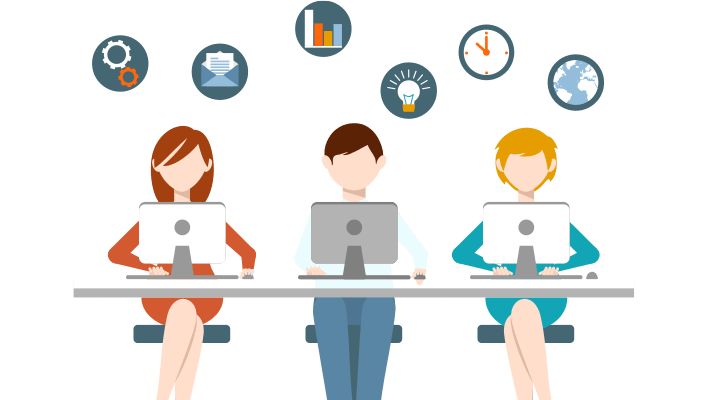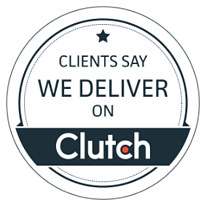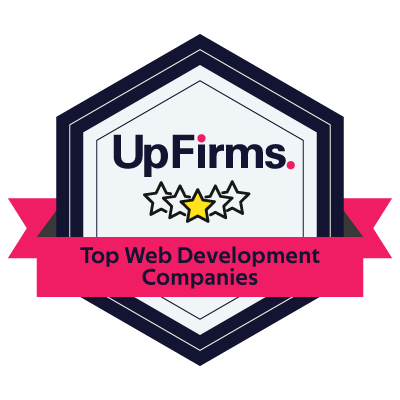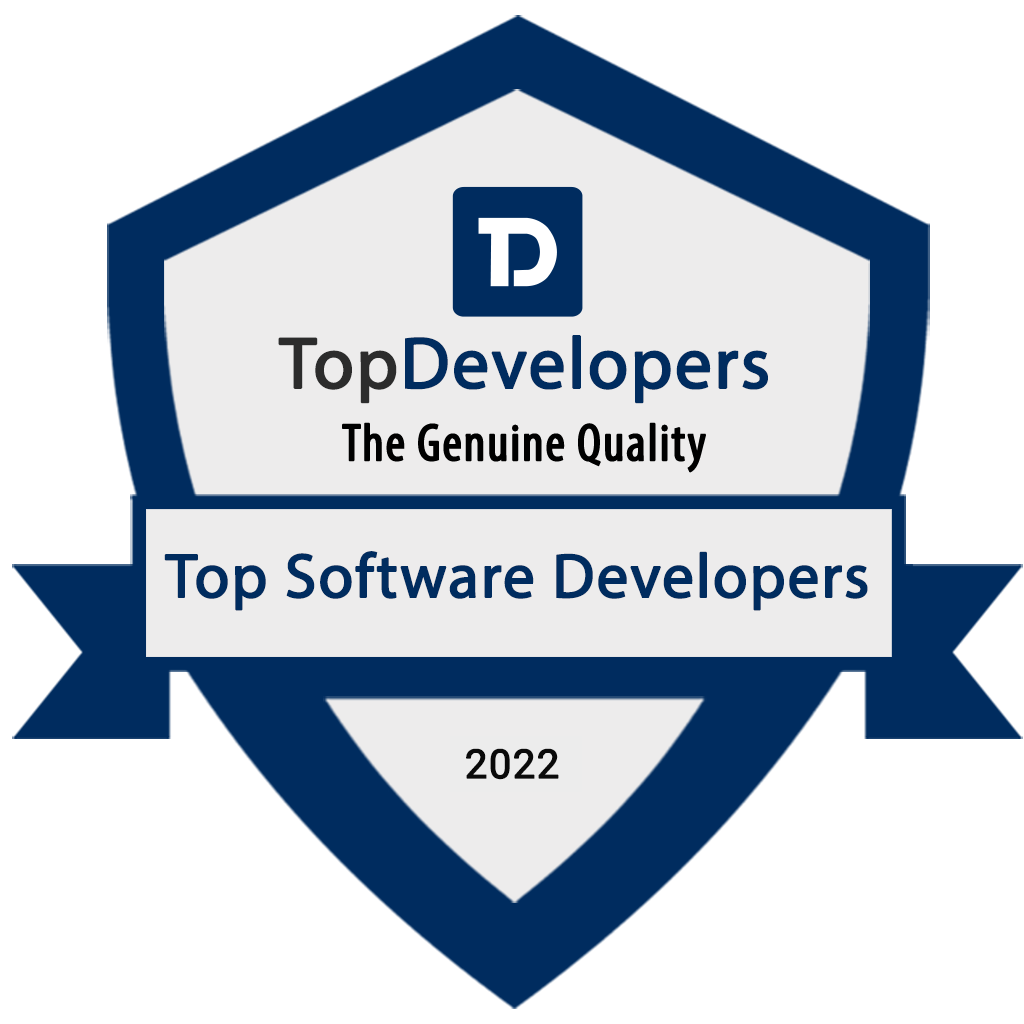Outsource L1 L2 Support to Pune: A Smart Move for Scalable IT Support
Outsource L1 L2 Support to Pune for cost-effective, 24/7 IT helpdesk services. Boost efficiency and scalability with expert support…
Premier Providers Powering Our Innovations
Leveraging the Latest Technologies to Deliver Excellence as a Top Software Product Development Company
Their level of understanding, detail, and work ethic was great. We had 1 designer, 2 developers, a Project Manager, and a QA specialist. I am extremely satisfied with the end deliverables. Zenkins experts were always on time during the process.
We get great satisfaction working with them. They help us produce a product we’re happy with as co-founders. The feedback we got from customers was really great, too. Customers get what we do and we feel like we’re really reaching our target market.
I'm working with Zenkins for a year already and I like that I don't need to go into detail describing every moment, team members are proactive and always open to sharing good ideas with us.
Zenkins helped to build an amazing development team that eventually transformed into our Eastern European subdivision. The team that was built by Zenkins is very involved in the development and plays a significant role in growing our ERP product solution.
As the name and slogan suggest they are truly enterprise software development company and they resolve our business problem with help of custom software application build in .NET technology and we all love it. Highly recommended for small medium or large business or enterprise software applications.
Zenkins Technologies - A one-stop destination for start-up, middle age, and large enterprises to build any kind of software application that helps to reduce human effort and improve the business process. They help us with the standard business website and online marketing. I like to give 5 star for the services.
Partner with a Leading Software Product Development Company to Bring Your Ideas to Life—Contact Us Today!






Outsource L1 L2 Support to Pune for cost-effective, 24/7 IT helpdesk services. Boost efficiency and scalability with expert support…
Boost customer support with Email and Ticket Support Outsourcing in Pune. Save costs, scale fast, and ensure 24/7 quality…
Explore the growing European Demand for Software and IT Services Partners in India in this strategic 2025 analysis. Discover…
Software development is the process of creating, designing, programming, testing, and maintaining software systems or applications. It involves the use of programming languages, frameworks, and tools to build functional and reliable software solutions that meet specific requirements.
Software product development is the comprehensive process of creating, designing, building, and maintaining software applications or systems. This involves several stages, including planning, requirement analysis, design, development, testing, deployment, and ongoing support. As a leading software product development company, we specialize in turning innovative ideas into high-quality software products that meet your business needs and objectives. Our approach ensures that each phase is handled with expertise and precision to deliver a solution that is both functional and scalable.
Effective software product development ensures that businesses can meet specific market needs with innovative solutions, driving competitive advantage, revenue growth, and customer satisfaction.
A software product development company typically provides a range of services including ideation, prototyping, UI/UX design, development, testing, deployment, and ongoing support for custom software products.
While both involve creating software solutions, software product development focuses on building market-ready products for broader commercial use, whereas custom software development tailors solutions specifically to individual client needs.
Look for companies with expertise in your industry, a proven track record of successful product launches, strong technical skills, a collaborative approach, and a commitment to understanding and meeting your business objectives.
The timeline for software product development varies based on complexity, scope, and specific requirements. It can range from a few months for simpler projects to a year or more for complex, enterprise-level solutions.
Key stages include planning and strategy, requirements gathering, design (UI/UX), development (coding), testing and quality assurance, deployment, and post-launch support and maintenance.
It can streamline operations, enhance customer experiences, enable scalability, improve efficiency, facilitate innovation, and open new revenue streams through market-ready software solutions.
Virtually all industries can benefit, particularly those looking to innovate and streamline processes through technology. Common sectors include healthcare, finance, e-commerce, manufacturing, and education.
Start by identifying your business goals and challenges, then consult with a reputable software product development company to discuss your vision, requirements, and a tailored development plan.
The software development life cycle typically consists of the following stages:
A software development company is an organization that specializes in providing software development services to clients. These companies have teams of skilled software developers, designers, project managers, and quality assurance professionals who collaborate to build custom software solutions based on client requirements.
Software development companies offer a range of services that may include:
Software development companies typically follow a structured process when working with clients. It often includes the following steps:
To choose the right software development company, consider the following factors:
The development timeline for software can vary widely depending on factors such as the complexity of the project, the size of the development team, the scope of the requirements, and the development methodology used. Small projects may take a few weeks to complete, while larger and more complex projects can span several months or even years.
Agile software development is an iterative and flexible approach to software development that emphasizes collaboration, adaptability, and rapid delivery of working software. It involves breaking down the project into smaller iterations or sprints, where cross-functional teams work collaboratively to deliver incremental features and continuously improve the software based on feedback.
Waterfall software development is a traditional sequential approach to software development. It follows a linear progression through defined phases, such as requirements gathering, design, implementation, testing, and maintenance. Each phase must be completed before moving on to the next, making it less flexible than Agile methods.
The cost of software development services varies depending on factors such as the complexity of the project, the size of the development team, the location of the development company, and the specific requirements of the software. Different pricing models, such as fixed-price or hourly rates, can also impact the cost. It is advisable to discuss your project requirements with software development companies to obtain accurate cost estimates.
Off-the-shelf software, also known as commercial off-the-shelf (COTS) software, refers to pre-built software solutions that are readily available in the market. These are typically developed to meet the common needs of a wide range of users and industries. Custom software development, on the other hand, involves building software specifically tailored to the unique requirements of a particular organization or business. Custom software offers greater flexibility, scalability, and can be designed to align closely with the organization’s processes and workflows.
Software development services can bring several benefits to your business, including:
The choice of technologies and programming languages depends on the specific requirements of the project. However, some commonly used technologies and languages in software development include:
Software development services employ various security practices to ensure the security of your application. These may include:
Intellectual property rights can be addressed through legal agreements such as Non-Disclosure Agreements (NDAs) and Intellectual Property (IP) assignment agreements. These agreements clarify the ownership and protection of intellectual property created during the software development process. It is important to discuss and define intellectual property rights with the software development company before starting the project to ensure clarity and avoid any potential disputes.
Frontend development refers to the creation of the user interface (UI) and user experience (UX) of a software application. It involves using technologies such as HTML, CSS, and JavaScript to design and develop the visible components that users interact with directly. Backend development, on the other hand, focuses on the server-side of the application. It involves handling the business logic, data storage, and communication with the frontend. Backend developers typically work with programming languages such as Java, Python, PHP, or Node.js, and interact with databases and APIs to ensure the application’s functionality.
Quality assurance (QA) plays a crucial role in software development by ensuring that the software meets the specified requirements, functions correctly, and is reliable. QA involves activities such as creating test plans, developing test cases, executing tests, and reporting and tracking defects. QA engineers or testers focus on identifying bugs, issues, and inconsistencies in the software, performing functional and non-functional testing, and ensuring the overall quality of the product before it is deployed to users. QA helps in reducing the risk of software failures, improving user satisfaction, and maintaining the integrity of the software.
The terms “software developer” and “software engineer” are often used interchangeably, and the distinction can vary depending on the context. However, in general, a software developer is primarily focused on coding and implementing software applications. They typically work on specific programming tasks and may specialize in a particular programming language or technology. On the other hand, a software engineer often has a broader skill set and a more comprehensive understanding of software development principles and practices. They may be involved in various stages of the software development life cycle, including requirements analysis, design, development, testing, and maintenance.
Agile methodology is an iterative and flexible approach to software development that emphasizes collaboration, adaptability, and customer involvement. It aims to deliver working software in incremental cycles or iterations, rather than waiting until the entire project is completed. Agile methodologies, such as Scrum or Kanban, promote frequent communication, feedback, and transparency among team members. They prioritize flexibility to accommodate changing requirements and encourage continuous improvement through retrospectives. Agile development enables faster delivery of software, improved adaptability to changing needs, and increased customer satisfaction.
A software prototype is an early representation of a software product or system. It is typically used to showcase and validate specific features, functionalities, or design concepts. Prototypes are often developed quickly and may not be fully functional or scalable. They serve as a visual aid to gather feedback, refine ideas, and make informed decisions before proceeding with full-scale development. On the other hand, a minimum viable product (MVP) is a functional version of the software that contains the minimum set of features required to meet the needs of early adopters or users. MVPs are developed with the goal of validating the product’s value proposition, gathering user feedback, and iterating based on that feedback.
Software development services play a crucial role in digital transformation initiatives by enabling organizations to leverage technology to improve their processes, operations, and customer experiences. Custom software solutions can be developed to automate manual tasks, streamline workflows, and integrate disparate systems, leading to increased efficiency and productivity. Software development services can also facilitate the development of mobile applications, web platforms, or cloud-based solutions that enhance accessibility and enable organizations to leverage data for data-driven decision-making. Through digital transformation, organizations can stay competitive, meet evolving customer expectations, and drive innovation in their respective industries.
Yes, many software development companies offer ongoing support and maintenance services after the software is deployed. This includes addressing bug fixes, software updates, security patches, and providing technical assistance to users. Support and maintenance services can be offered through various engagement models, such as retainer-based agreements or on-demand support. It is important to discuss the level of support and maintenance required with the software development company during the initial project discussions to ensure that it aligns with your needs and expectations.
Tailored Solutions, Expert Advice, and Project Estimates Await.
Expect a Prompt Call from one of our Account Managers.
At Zenkins, we bring together a curated network of elite IT professionals ready to elevate your projects to new heights. From seasoned developers to innovative designers, our handpicked talent pool is here to turn your visions into reality. Experience unparalleled expertise, reliability, and dedication to excellence with our team of Elite IT Professionals.
At Zenkins, we understand the importance of global collaboration. That’s why our team is strategically aligned across time zones, ensuring seamless communication and productivity no matter where you are. From brainstorming sessions to project updates, our time zone-aligned approach guarantees that deadlines are met and progress never stalls. Experience the convenience of working with a team that’s always in sync.
At Zenkins, we pride ourselves on our experienced team of professionals who bring years of industry knowledge and skill to every project. From seasoned developers to seasoned project managers, our team has the expertise to tackle even the most complex challenges. With a proven track record of success, we deliver results that exceed expectations.
| Cookie | Duration | Description |
|---|---|---|
| cookielawinfo-checkbox-analytics | 11 months | This cookie is set by GDPR Cookie Consent plugin. The cookie is used to store the user consent for the cookies in the category "Analytics". |
| cookielawinfo-checkbox-functional | 11 months | The cookie is set by GDPR cookie consent to record the user consent for the cookies in the category "Functional". |
| cookielawinfo-checkbox-necessary | 11 months | This cookie is set by GDPR Cookie Consent plugin. The cookies is used to store the user consent for the cookies in the category "Necessary". |
| cookielawinfo-checkbox-others | 11 months | This cookie is set by GDPR Cookie Consent plugin. The cookie is used to store the user consent for the cookies in the category "Other. |
| cookielawinfo-checkbox-performance | 11 months | This cookie is set by GDPR Cookie Consent plugin. The cookie is used to store the user consent for the cookies in the category "Performance". |
| viewed_cookie_policy | 11 months | The cookie is set by the GDPR Cookie Consent plugin and is used to store whether or not user has consented to the use of cookies. It does not store any personal data. |